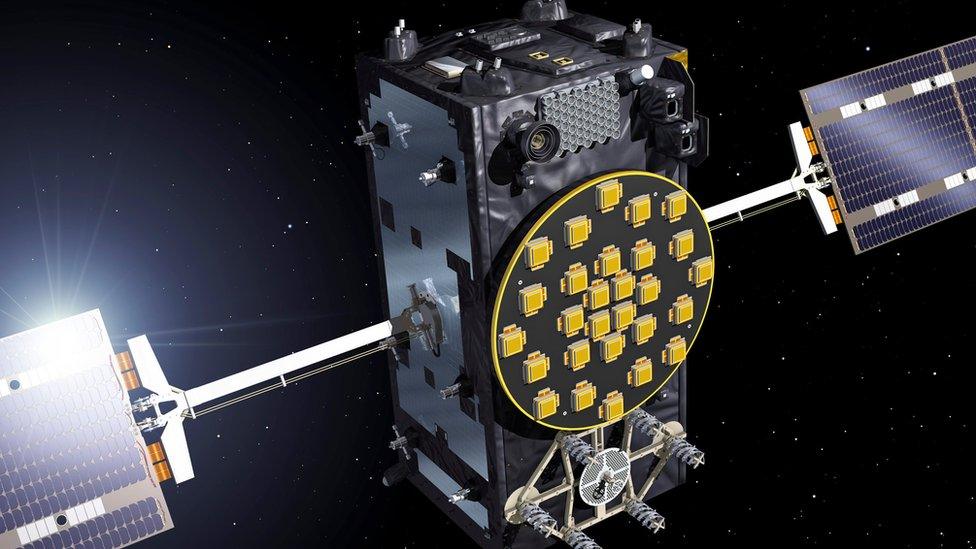Space: Wales' new strategy could boost economy by £2bn
- Published
Black Arrow Space Technologies wants to set up a base in Port Talbot later this year
Plans to launch rockets at sea and build satellites that will act as mini-factories form part of a new strategy to boost Wales' space industry.
The hope is the sector will bring in £2bn a year to the Welsh economy by 2030.
British astronaut Tim Peake said he was "delighted" by the proposals.
But one firm named in the Welsh government's strategy said other similar-sized countries were "doing an awful lot more, an awful lot quicker".
Space has been among the UK's fastest growing sectors in recent years, employing 42,000 people, of whom just 1% are based in Wales.
But ministers have claimed the country is well placed to become a "true haven for space industry innovation".
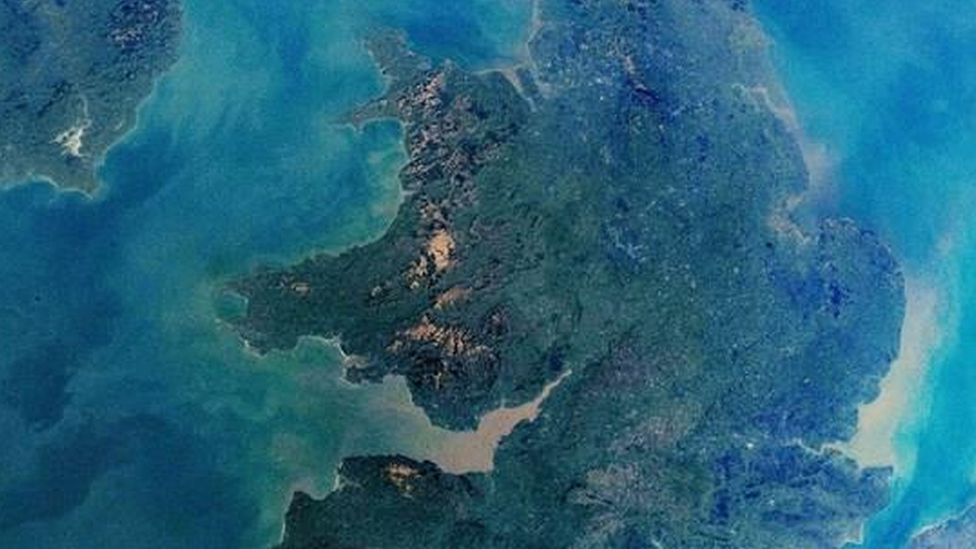
An astronaut's view of Wales from space
They said they wanted to put a particular focus on environmentally-friendly space enterprises.
Cardiff firm Space Forge is one example, as later this year it is set to launch an innovative reusable satellite into orbit.
This means one that can be sent up, brought down and then sent back up again repeatedly.
If successful, this will be the first satellite made entirely in Wales and the company hopes to use those that follow for in-space manufacturing.
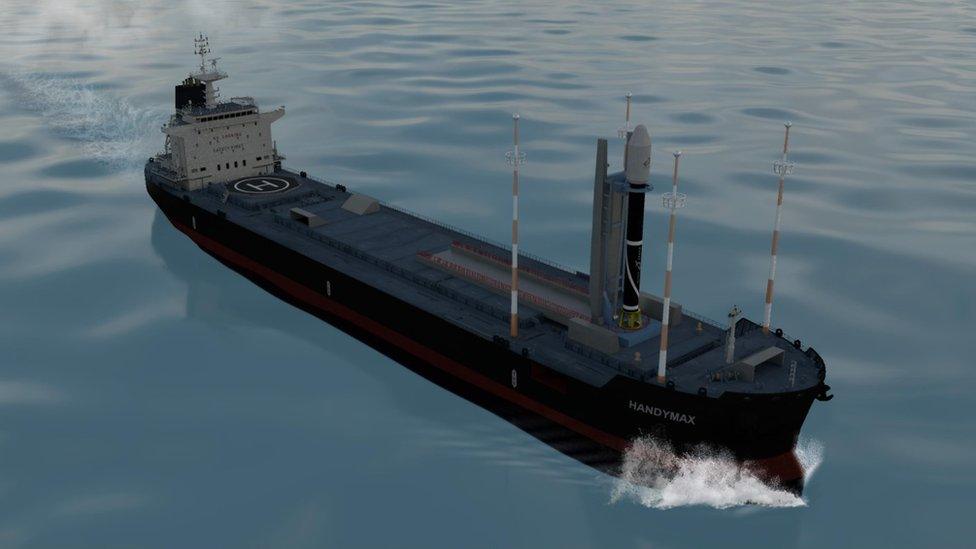
The seaborne launch vessel that will be based at Port Talbot
That means taking advantage of conditions in space such as ultra-low temperatures and lack of gravity to make new materials the company says could help us transition towards a low-carbon future on Earth.
Chief executive Joshua Western said the firm hopes to expand from 30 to 100 staff by 2024, describing the new Welsh space strategy as "an important milestone that will help galvanise the industry".
The infrastructure already in place along the Welsh coastline - such as the military testing range at Aberporth in Ceredigion - was ideally suited to returning the satellites from orbit, he said.
Alongside Aberporth, Radnor range in Powys, Pendine in Carmarthenshire and the Llanbedr airfield in Gwynedd - home of Spaceport Snowdonia - will all be involved in testing and evaluating new greener propulsion technologies for launching objects into space, the government's strategy notes.
Efforts to coordinate and promote research in the area amongst Welsh universities is also under way - including the use of satellite data to monitor the environment and help with issues such as coal-tip subsidence.
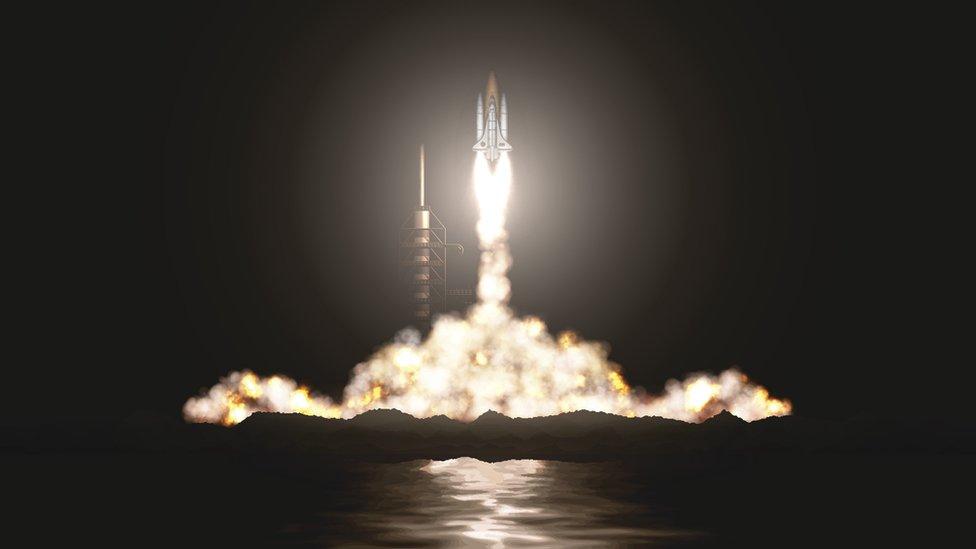
Vaughan Gething said the strategy aimed to bring "well-paid, highly skilled jobs closer to home"
"We must remember this is all about fixing challenges on Earth," explained Alan Davies, development manager for Space Wales, an organisation set up to help deliver the new strategy.
"From communication challenges to environmental ones, these problems can all be improved by the utilisation of space data and resources," he said.
Economy Minister Vaughan Gething said the strategy also aimed to bring "well-paid, highly skilled jobs closer to home, spreading prosperity across Wales".
"This exciting sector opens up a new front in tackling climate change and perfectly aligns with our focus on clean energy and the wider green agenda," he said.
Smaller nations, such as Wales, are making their mark when it comes to the space sector, according to Dr Bleddyn Bowen from the University of Leicester.
"Unlike 40 years ago, space isn't just for the big countries," said the expert in space policy.
"Whether it's making components for satellites or selling services based on the data gathered from them, lots of small economies are doing more and more in space today," he said.
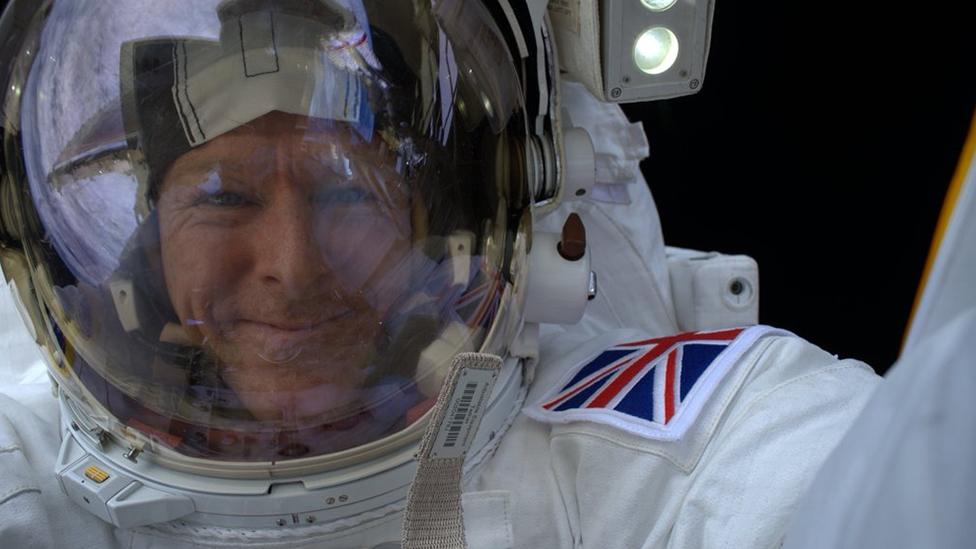
The Welsh government's proposals have won the backing of astronaut Tim Peake
But while the government's strategy reads as "a very aspirational" document it lacks any significant funding announcements, he suggested.
Meanwhile, Black Arrow Space Technologies - another firm named in the strategy - claimed the Welsh government has been slow off the mark in its support for the sector.
The company hopes to set up a base in Port Talbot later in 2022, with the aim of launching payloads of up to 500kg into orbit from a specially designed ship.
This will be a totally different approach to any other rocket or satellite launching operation across the UK - which are all land-based.
Black Arrow's chief executive, Paul Williams, described Port Talbot as a "highly optimal" area - with its deep-water harbour close to the proposed launch site out at sea, manufacturing heritage, skilled workforce and academic links.
Tim Peake's family wave as the Soyuz rocket blasts off into space
He said he wanted to see Port Talbot developed as a "space cluster" for companies in the field - and while welcoming the publication of a new strategy for the wider sector, said he was critical of the time it has taken for ministers to act.
"I've always maintained that Wales has a major part to play in the UK space sector.
"But when we look around at other countries that seem to be doing an awful lot more, an awful lot quicker - it's quite frustrating," he said.

Paul Williams believes south Wales could become a major player in the space sector
However, the government's proposals have won big-name backing in the form of astronaut Tim Peake.
"Space has an ability to inspire and educate future generations, as well as being at the heart of solving some of today's toughest challenges," he said.
"Technology and innovation are key to growing our economy with a skilled workforce and I'm delighted to see that Wales is embracing the exciting opportunities that the space sector has to offer."
The UK space sector has previously set a target of achieving a 10% share of the predicted £400bn annual global space market in 2030.
The Welsh government's ambition is for Wales to achieve a 5% share of the UK's share, which would equate to £2bn per year for the Welsh economy.
- Published24 September 2019
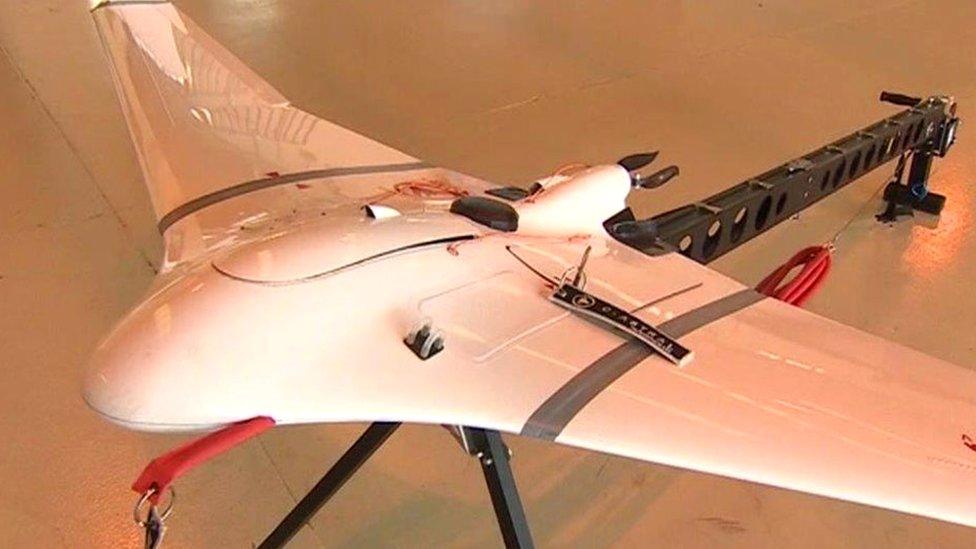
- Published9 December 2015

- Published10 June 2018

- Published25 April 2018
